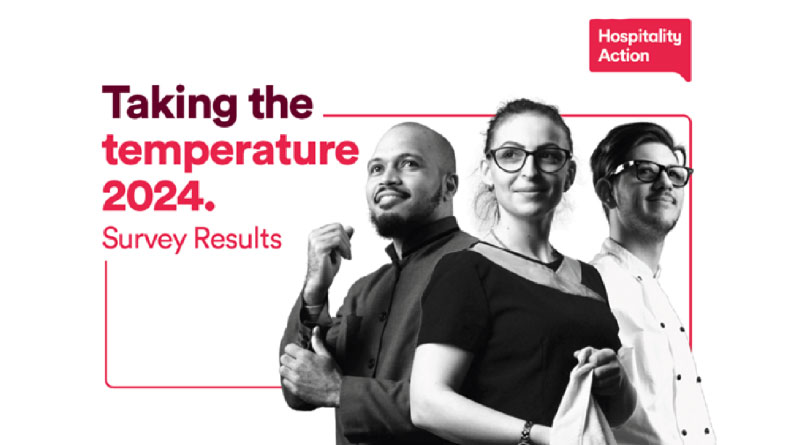Hospitality Workers Report Surge In Mental Health And Wellbeing Issues

Hospitality workers from across the industry have reported an unprecedented rise in mental health struggles based on a recent survey conducted by UK charity Hospitality Action.
The survey, which took place in June this year, revealed a significant increase in the proportion of hospitality workers reporting mental health issues in their careers, rising from just over half (56%) in 2018, 64% in 2020, to more than three-quarters (76%) in 2024.
Over two-thirds (69%) said that they have experienced mental health challenges in the last five years since the Covid-19 pandemic and cost of living crisis, half (49%) in the last two years alone.
When asked to identify the top three challenges they were personally likely to face in the next 12 months, managing a good work/life balance (60%) was cited as the primary issue, closely followed by mental health (44%) and finances (42%). The correlation between deteriorating finances, poor mental health and workplace pressure is borne out by the surge in calls the charity has experienced to its helplines over recent months.
When considering the main challenges facing their workplace generally, respondents thought work/life balance (45%), high expectations/workload (43%) and long hours (40%) were the issues most likely to impact organisational wellbeing.
A key concern for employers should be how opinion is divided regarding whether hospitality organisations adequately support employee wellbeing. Whilst two-thirds of respondents believe that their employer creates an environment where their mental health can be openly discussed, and that they have a good work life balance (agree 62%), more than a third of employees (38%) do not feel either to be true. This ‘lost third’ tend to be in more operational roles and are generally amongst less experienced team members, highlighting the need for employers to make sure nobody is left behind in terms of employee communications.
Just over half of respondents would be comfortable to discuss their mental health with their employer (52%). However, two-thirds (65%) stated that they would be reticent to vocalise a mental health challenge due to fears it could negatively impact their career progression, a vital point employers must address if they are to succeed in fostering a truly supportive and open work culture.
Encouragingly, 85% of respondents feel that they can recognise the signs to look out for if a colleague is struggling and 79% would start a conversation.
Regarding the assistance most likely to be offered to an employee citing a mental health issue, almost three-quarters (71%) of employers said they would look to change working patterns to help improve work/life balance and reduce stress. Additionally, two-thirds (67%) would also signpost employees to an Employee Assistance Programme (EAP), indicating the significantly important role EAP’s play in mental health support.
In response, the charity is urging the industry to review its mental health and wellbeing provisions with a view to substantially enhancing protocols and initiatives to better support employees, and nurturing an environment in which it is safe to voice concerns without fear.
Chief Executive at Hospitality Action, Mark Lewis, said:
“Despite significant progress in recent years reducing the stigma associated with mental health and wellbeing, it is evident that we still have a long way to go. Employers must take the lead by creating a work environment that prioritises a balanced work/life dynamic and which encourages open, honest discussions without fear of negative repercussions.
“The Covid-19 pandemic and cost of living crisis devastated our industry, as evidenced by these survey results and the surge in calls to our helplines. A fundamental, permanent shift in attitude towards mental health is essential to provide the crucial help and support needed to sustain a resilient and healthy workforce in our industry.”
The results of the Taking the Temperature survey will be discussed in more detail on Thursday 25 July at 9:30am when Hospitality Action’s Marketing Director, Jeremy Gibson, will join Founder of mum and Walk for Wellbeing, Craig Prentice, in Episode One of our ‘Talk for Wellbeing’ series.
Join the live discussion here.
Other key takeaways:
- The biggest personal challenges impacting staff wellbeing for the coming year are finances, mental health and managing a good work/life balance (in that order).
- Respondents are most likely to turn to family and friends for advice, with a manager being their least preferred option.
- Of those that have access to a mental health first aider, almost half (48%) do not know who it is.
- Opinion is evenly divided regarding whether hospitality organisations adequately support employee wellbeing, with nearly a third (32%) feeling supported and an equal proportion (33%) saying they still have no clear support.
- Just under half (44%) agree that their organisation does not prioritise their mental health and wellbeing.
